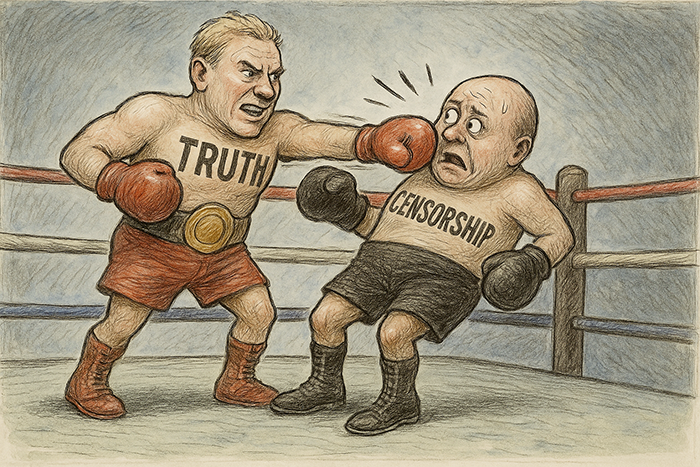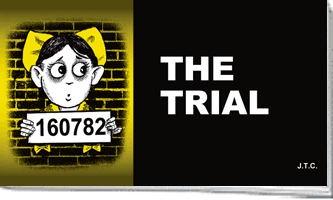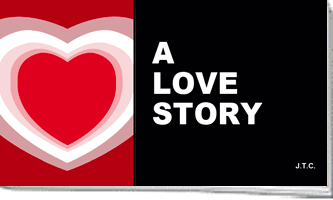The Censorship Noose May Be Loosening

For years, Christians have been in a running battle with censorship. Comment on a news story with a biblical worldview, and it might vanish without warning. Share a verse about the value of life, and suddenly your post is flagged as "disturbing." Try to repost a link from a trusted Christian source, and you’re told it’s "false information"—even when it’s not.
Now, that may finally be changing.
Fact Checkers are Checking Out
As of April 7, Meta—parent company of Facebook and Instagram—surprisingly ended its U.S. fact-checking program. For many users, this marks the end of a system that often felt like viewpoint management instead of content moderation. In its place, Meta is rolling out a new model called Community Notes—already in use on X. In this version, the community is allowed to add context to posts, so what you say might actually get read!
The key difference? No warning labels. No automatic penalties. And no hidden decisions by faceless fact-checkers determining whose voice gets heard.
Meta CEO Mark Zuckerberg announced the shift earlier this year, saying, “It’s time to get back to our roots around free expression.” Whether the move is driven by public or political pressure, the effect is clear: Christians now have a rare opportunity to speak freely, without the fear of being banned or silenced.
The Fallout of Fact-Checking
The Family Research Council (FRC) is one of many organizations that’s experienced the cost of the old system.
“Over the last five years, FRC has had a number of posts labeled as ‘false’ or ‘partly false’ by Meta’s fact-checkers,” said Keri Boeve, FRC’s director of social media. One targeted post featured a map showing state-level protections for babies who survive failed abortions. Another shared updated data on what happens to those children afterward. Both were labeled misleading, despite being grounded in verifiable data.
“Each time, we appealed the rating,” Boeve said. “The false ratings were never overturned.” The impact was immediate: a reduction in reach, engagement, and the ability to share truth on issues that matter.
The experience has been similar for everyday users. Posts were buried, comments disappeared, and accounts lost visibility without explanation. What started as an effort to fight "misinformation" often ended in the suppression of legitimate, biblical perspectives.
The Public Is Pushing Back
Meta isn’t backing down on a whim. They’re responding to pressure from users, lawmakers, and a dramatic shift in public opinion. That demand for open conversation is growing across the board—and tech companies are finally feeling it.
A recent Pew Research Center survey shows that Americans are losing patience with online censorship. Just 51% now support government censoring of "false" information—down from 60% in 2021. Support for tech platforms doing the same has dropped from 65% to 60% in just the last year. The direction is clear: people are tired of being told what they can and can’t say.
A Strategic Moment for Christian Voices
For believers who have watched their posts vanish or seen key articles hidden under opaque "missing context" warnings, Meta’s move feels like a breath of fresh air. For the first time in years, the digital playing field looks a little more open.
This is a time for believers to re-engage by offering biblically-based comments on news articles and trending topics. We must share truth that stands out and encourages honest conversations that have the potential to change hearts. It’s time to comment and share posts from local pastors, national ministries, and Christian journalism to increase exposure.
Platforms change and policies will shift, but the more visible the Christian community is now, the harder it will be to erase that presence later. Censorship hasn’t vanished, it’s just stepped back. But with fewer filters in place, we have a renewed opportunity to bring biblical truth into public spaces.
Let’s do our part and share the gospel online and in person with Chick tracts. When we have the freedom to witness, and we don’t, we draw ever nearer to the day it becomes outlawed altogether. We maintain our freedom to share our faith only by actively doing so.
- See more articles on related topics:
- For Christians
- Other Subjects
- Religious Freedom
- Hate Speech
Products of interest:
-

Hot Topics
128 pages
Over the years, Jack Chick has written some tracts on such "politically incorrect" issues that Christians were often afraid to pass them out. Yet those messages are both current and biblical. -

Trial, The
A young girl is sued because she witnessed to her young friend. A humorous story that drives home the vital Biblical truth that Jesus is the only way to heaven. -

This Was Your Life
Everything you have said or done will be played back at judgment. Will your name be in the Book of Life? -

Love Story, A
Who loves you so much He gave you life and left heaven to die for you? It was Jesus!
